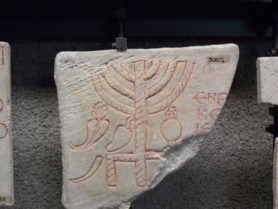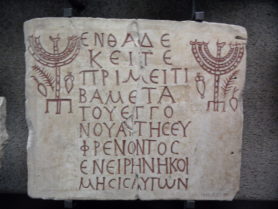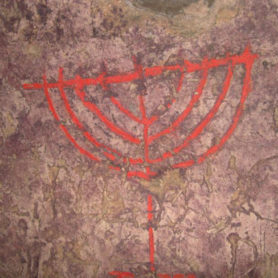Project aims and goals
In its pilot stage (summer 2020) the PEACE portal merged three epigraphic databases (FIJI, Epidat, IIP) into one uniformly structured entity, which enables to search for terms and concepts (e.g. Eden, afterlife) as well as specific parameters (e.g. age, sex), and consequently identify historical patterns over time and space. Researchers can employ the search function to explore topics such as:

- Commemorative norms
- Gender and sexuality
- Onomastics
- The semiotics of Jewish funerary culture
- Memory and immortalization
- Emotions in Jewish funerary culture
Large data analysis
By applying to the epigraphic records computational methods of large data analysis, it will become possible to identify linguistic, socio-economic and cultural patterns in ways hitherto unexplored. Some interesting research foci are: 
-
- Identity, diaspora and migration through the centuries
- Cultural adaptation and transmission among Jews, and between Jews and non-Jews
- Demography and genealogy
Digital challenges and foreseen benefits
The nature of the Hebrew language, in which most sources are written, confronts the computer experts with numerous challenges:
- written from right to left: א ב ג ד ה ←
- the absence of vocalization: ב = ba, be, bi, bo, bu, b, v
- the nature of prefixes and suffixes
Hence, an additional benefit of the PEACE project is the customization of existing digital tools, to enable searching for concepts and analyzing vast amounts of data, in the Hebrew language. The adapted tools then will be available for other academic projects involving Hebrew, Aramaic, or other Semitic languages such as Arabic.

Future goals
By becoming a major hub for the study of Jewish funerary culture, the PEACE portal will bring together researchers from a variety of disciplines: epigraphy (which is the project’s initial focus), but also funerary archaeology, cultural and religious studies, conservation and cultural heritage, and providers of education. Search functions will be expanded so as to enable the exploration of complex queries, found at the intersection of these disciplines.
